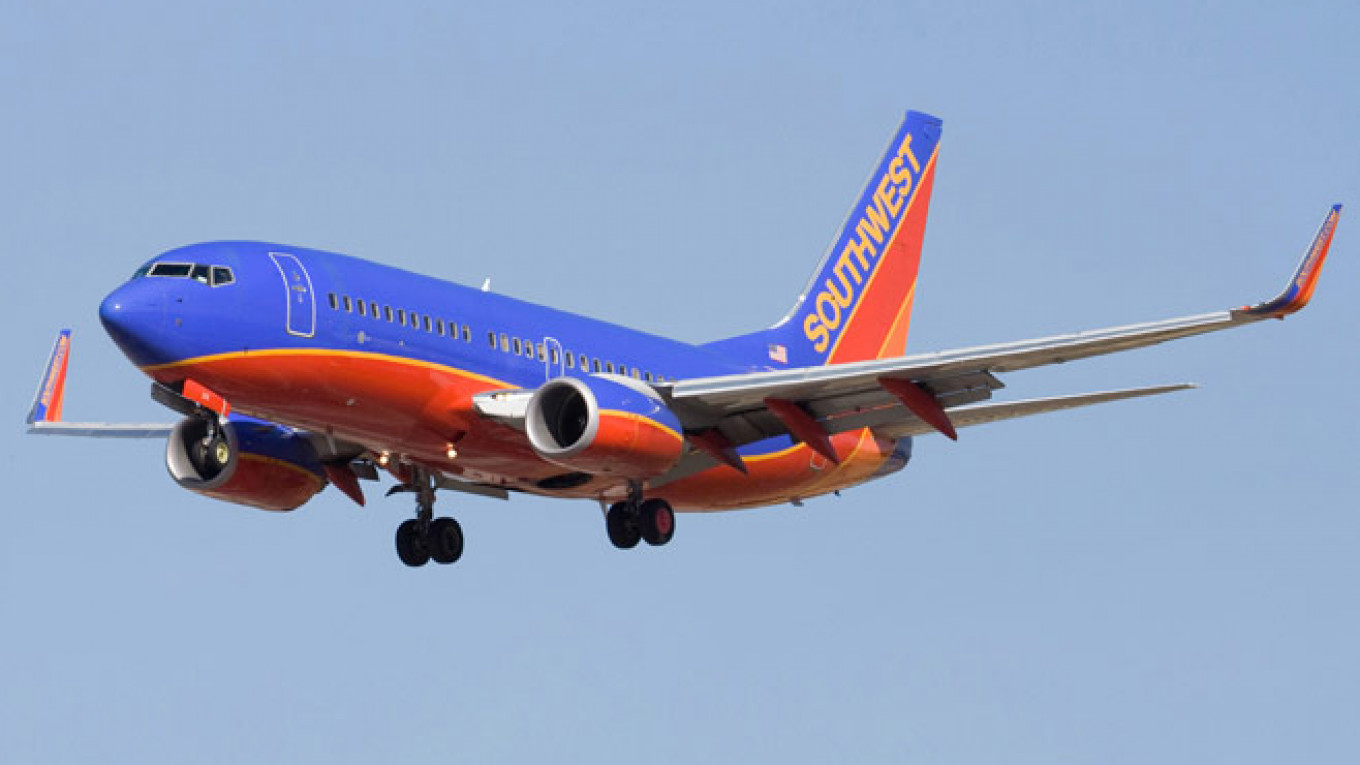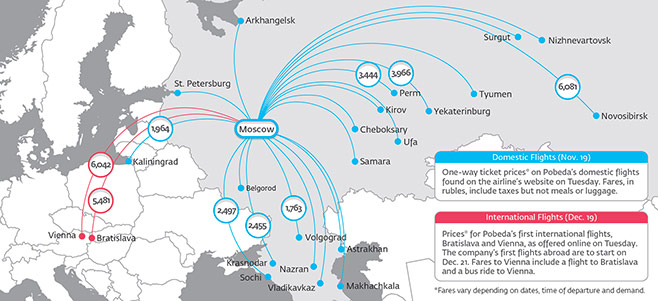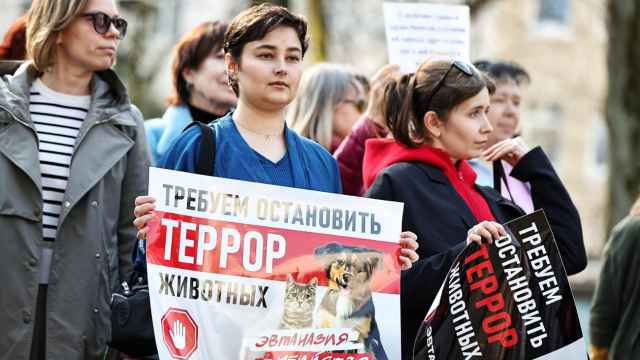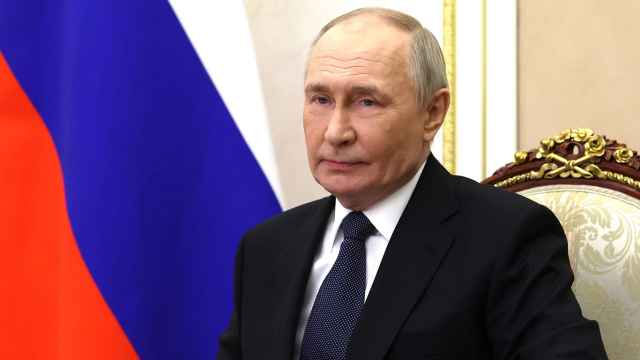While foreign air carriers quit the Russian market in droves amid falling demand, Russia's only low-cost airline, Pobeda, is in the midst of launching unprecedentedly cheap flights to Europe.
On Nov. 12, the low-coster, a subsidiary of Russia's national carrier Aeroflot, opened sales of tickets for its first international destinations, Bratislava and Vienna (which includes a flight to Bratislava and then a bus trip to Austria's capital) with ticket prices starting from 999 rubles ($15).
The move was surrounded by plenty of hype. As many as 2,700 tickets were sold within the first 10 hours of sale.
Apart from Bratislava and Vienna, Pobeda is planning to launch flights to the European cities of Salzburg, Verona, Bergamo, Chambery, Dresden and Cologne. The sales for two new destinations will start by the end of the year, the company said in a statement.
The rush caused by the start of ticket sales for international destinations indicates that there is plenty of demand for cheap plane tickets in Russia — though that doesn't necessarily guarantee the success of the new budget airline, the experts said.
The business model for low-cost carrier requires special conditions that the Russian market currently can't offer, independent aviation analyst Alexei Zakharov said.
Russia has no airports for low-cost carriers, with lower rates and fast service, both essential for discounters' operations, he said.
Up and Away
Budget airlines have revolutionized air travel in Europe and currently generate 38 percent of European passenger flow. In Russia, all earlier attempts to set up a low-cost airline have failed so far.
Russia's first low-cost airlines, Avianova and Sky Express, set up in the beginning of the 2000s, went bankrupt several years after the launch, and Dobrolyot, Aeroflot's first attempt to set up a budget airline, was forced to shut down after the European Union put the company on its sanctions list last year over Russia's actions in Crimea.
Pobeda, which was founded last year to replace Dobrolyot, has ambitious plans for its development. By 2018, Pobeda aims to fly 10 million passengers annually, which will place it in the top five largest Russian air carriers. It is also looking to expand its Boeing 737-800 aircraft fleet from 12 jets to 40 in three years' time.
In October the airline, which currently operates on 22 routes inside the country, was granted permission to fly abroad. The move required changes to Russian aviation regulations that originally obliged the air carrier to fly only domestically for two years before launching flights to international destinations.
While preparing for international service, Pobeda faced a number of challenges. Earlier this month, the Tyumen regional arbitration court ordered the air carrier to abolish fees for hand luggage, a decision the company says it is going to appeal.
The company also failed to reach an agreement on tariffs and air carrier slots with Minsk, Belarus, which was meant to be Pobeda's first international destination. As a result, Pobeda's first flight abroad on Dec. 19 will be to Bratislava, Slovakia instead.
The high demand for cheaper flights comes as Russians' budgets are strained by the country's recession. However, passengers who aren't used to traveling light won't find Pobeda's prices too cheap after a closer look.
The low-cost airline has implemented a host of surcharges: for luggage weighing more than 10 kilograms, for in-flight food, and for advance selection of plane seats. In addition to that, Pobeda has introduced a 10 euro fee ($10.67) for each duty-free bag a passenger carries on board.
The launch of the international service by Pobeda also comes amid the shuttering of Russia's second biggest airline, Transaero, and foreign airlines' gradual withdrawal from the Russian market.
As a result of the reduction of the passenger flow on international destinations, a number of air carriers, including the German low-cost airline Air Berlin and British budget air carrier EasyJet, have quit the Russian market.
The lack of competition will play into Pobeda's hands, as will the patronage of its influential owner, Aeroflot, which controls over 40 percent of passenger air traffic in Russia, experts said.
As Russia's flag carrier, Aeroflot has huge administrative and financial resources that will help Pobeda stay afloat during the first years after the launch, independent aviation expert Andrei Kramarenko said. Aeroflot in turn could use its subsidiary as a tool to fight its competitors.
In Over Their Heads?
Pobeda's activity on domestic destinations has already forced Russian airline UTair to cut flights in a number of cities, according to Kramarenko, and is likely to cause similar situations on international routes.
However, in order to become a serious player in the market of international air travel in Russia, Pobeda will have to considerably expand its network of popular destinations, a move that could be limited by Aeroflot itself, according to the experts.
Aeroflot currently operates flights on the most profitable routes and won't share them with its subsidiary, Zakharov said.
Contact the author at a.bazenkova@imedia.ru
A Message from The Moscow Times:
Dear readers,
We are facing unprecedented challenges. Russia's Prosecutor General's Office has designated The Moscow Times as an "undesirable" organization, criminalizing our work and putting our staff at risk of prosecution. This follows our earlier unjust labeling as a "foreign agent."
These actions are direct attempts to silence independent journalism in Russia. The authorities claim our work "discredits the decisions of the Russian leadership." We see things differently: we strive to provide accurate, unbiased reporting on Russia.
We, the journalists of The Moscow Times, refuse to be silenced. But to continue our work, we need your help.
Your support, no matter how small, makes a world of difference. If you can, please support us monthly starting from just $2. It's quick to set up, and every contribution makes a significant impact.
By supporting The Moscow Times, you're defending open, independent journalism in the face of repression. Thank you for standing with us.
Remind me later.







